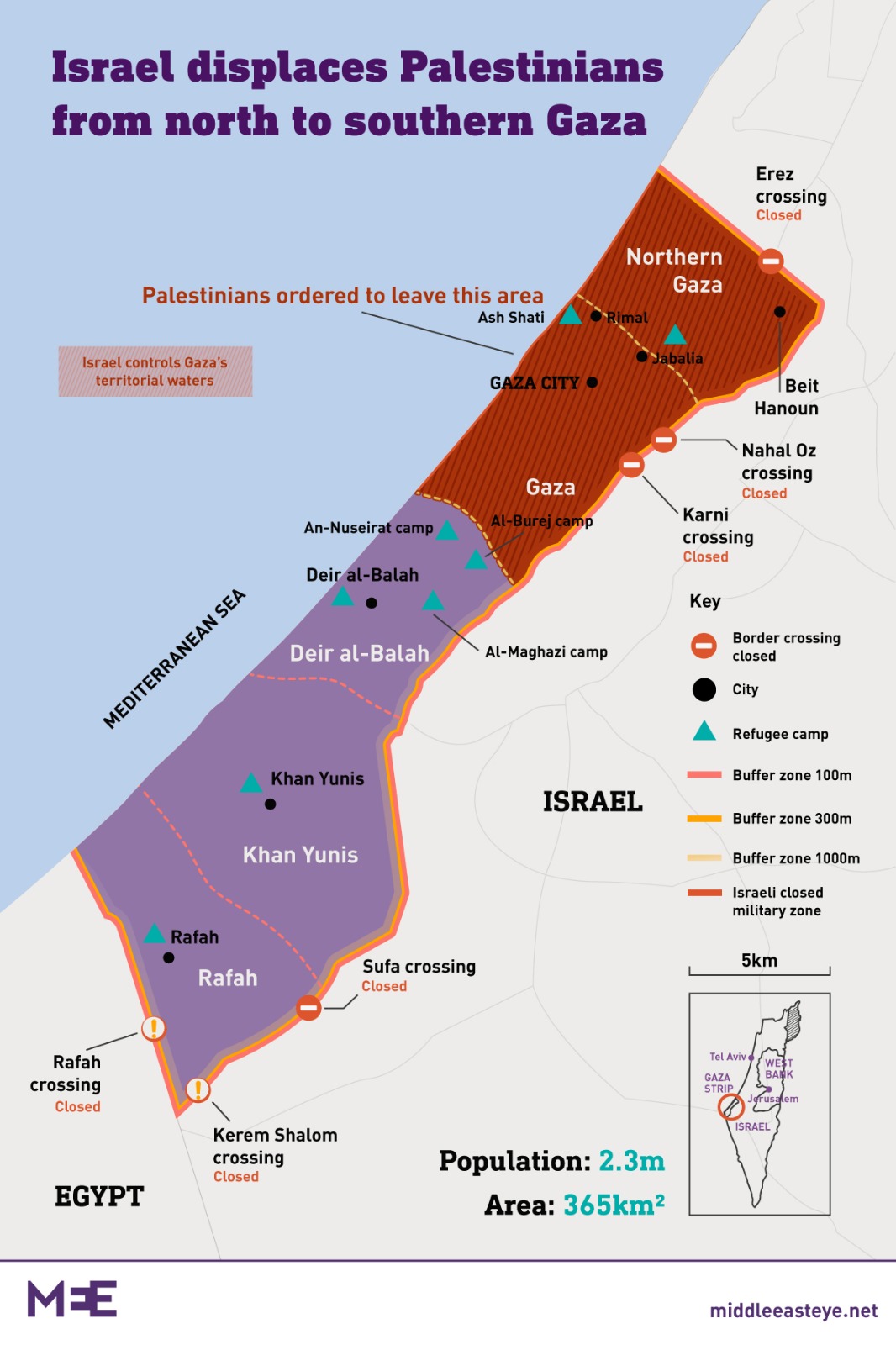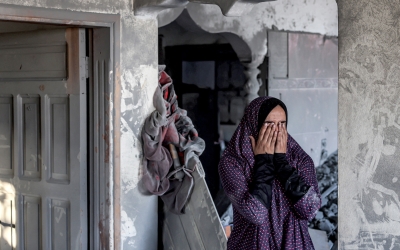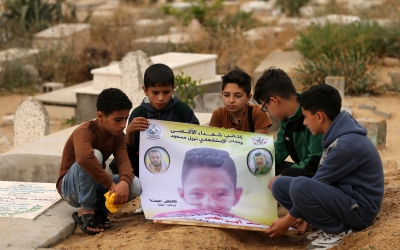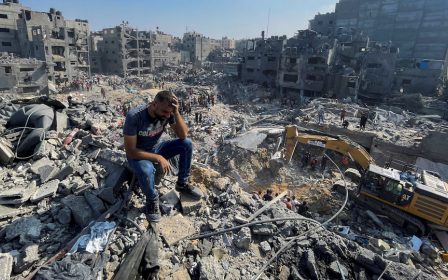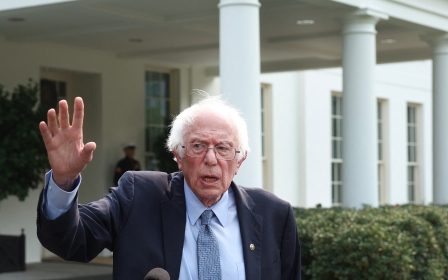Israel-Palestine war: Israel plays down US reports of four-hour 'pauses' in northern Gaza
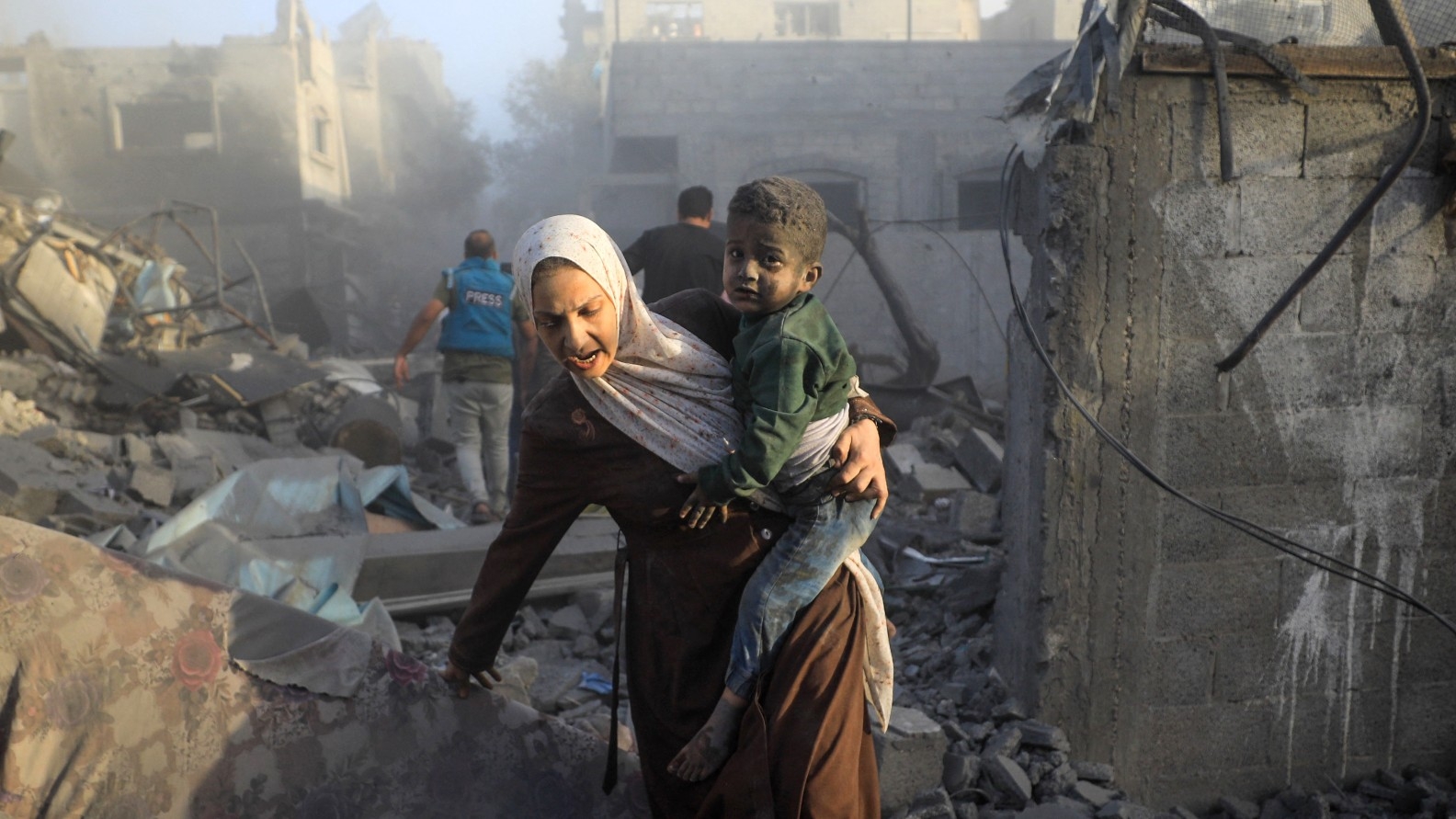
Israel appeared to play down US claims that it would begin implementing four-hour "humanitarian pauses" in northern Gaza, with Prime Minister Benjamin Netanyahu's office and Israeli military officials casting doubt over Washington's announcement.
Earlier on Thursday, White House spokesperson John Kirby told reporters that there would be two "humanitarian corridors" for Palestinians to flee northern Gaza to the south and that Israel would not carry out military operations in those areas for periods lasting four hours.
"We understand that Israel will begin to implement four-hour pauses in areas of northern Gaza each day, with an announcement to be made three hours beforehand," Kirby said, as he distinguished between the existing humanitarian windows which have been limited to certain roads over the past few days.
"The announcements today of these pauses come after a lot of engagement by the president, personal engagement by the president, with the prime minister [Netanyahu] and engagement at various other levels inside the administration," he added.
However, an hour later, a statement from Netanyahu's office said the fighting in Gaza would "continue and there will not be a ceasefire before the hostages are released".
New MEE newsletter: Jerusalem Dispatch
Sign up to get the latest insights and analysis on Israel-Palestine, alongside Turkey Unpacked and other MEE newsletters
Later, Israeli army spokesman Richard Hecht told reporters that the four-hour windows were "not a shift" in Israeli policy.
"I saw John Kirby's comment a few hours ago. There is no ceasefire. I repeat, there's no ceasefire," Hecht said. "It is a tactical pause for the movement from a specific area [to the] south."
While the terms pause and ceasefire might sound similar, the Biden administration has repeatedly opposed the latter, arguing that Israel needs to defend itself against Hamas.
"A ceasefire now would leave Hamas in place, able to regroup and repeat what it did on 7 October," Blinken told reporters on Saturday.
Rights groups and international bodies have repeatedly criticised Israel for forcibly expelling Palestinians from northern to southern Gaza, saying it was a repeat of the Nakba.
The Nakba, or "catastrophe" as it's known in English, refers to the ethnic cleansing of some 750,000 Palestinians from their lands and homes in historic Palestine to make way for the creation of Israel in 1948.
Follow Middle East Eye's live coverage for the latest on the Israel-Palestine war
On Sunday, Israel said it opened a corridor along the main road connecting the north and south of Gaza. It remains open for four hours a day but Israeli air strikes have continued unabated in both parts of the territory.
The UN agency that assists Palestinians said that thousands of people, including children, the elderly and people with disabilities, had moved south, most of them on foot.
Unrwa and other aid groups were providing them with water and high-energy biscuits just south of the line separating north and south.
Conditions have been growing more dire in the north, which has been out of reach of aid deliveries for the past week.
The UN said that as of Wednesday, no bakeries were operating there because of a lack of fuel, water, wheat flour and incessant Israeli air strikes.
Collective punishment is a war crime
Earlier on Thursday, Belgium's deputy prime minister called on the country's government to impose sanctions against Israel and investigate the bombings of hospitals and refugee camps in Gaza.
Deputy Prime Minister Petra De Sutter told the Nieuwsblad newspaper: "It is time for sanctions against Israel. The rain of bombs is inhumane. It is clear that Israel does not care about the international demands for a ceasefire."
The minister also said the European Union should immediately suspend its association agreement with Israel, which aims at better economic and political cooperation.
Her comments came as Volker Turk, the UN High Commissioner for Human Rights, said Israel and Hamas had both committed war crimes since the latest round of hostilities began on 7 October.
Volker cited Hamas's continued holding of captives and Israel's collective punishment of Palestinians as examples.
"The atrocities perpetrated by Palestinian armed groups on October 7 were heinous, brutal and shocking, they were war crimes – as is the continued holding of hostages," said Turk.
"The collective punishment by Israel of Palestinian civilians amounts also to a war crime, as does the unlawful forcible evacuation of civilians."
Two former international prosecutors also added their voices to the growing chorus demanding that the International Criminal Court issue arrest warrants for the political and military leaders of Israel and Hamas.
Carla Del Ponte, the former chief prosecutor of the tribunals for the Former Yugoslavia and Rwanda, and Graham Blewitt the deputy prosecutor of the International Criminal Tribunal for the Former Yugoslavia called the unfolding conflict a "human tragedy".
Writing in Politico, they said "thousands of lives have already been lost, and many more have been destroyed. Respect for international law is in short supply, with attacks on civilians, hostage taking, and the indiscriminate bombing of urban areas. Such acts can constitute international crimes."
Gaza children are 'not collateral damage'
The death toll in Gaza stood at more than 10,800 people on Thursday, including at least 4,412 children.
The Palestinian health ministry has said that 70 percent of the death toll comprised women, children and the elderly.
Philippe Lazzarini, the head of the UN agency for Palestinian refugees, Unrwa, slammed Israel's war conduct in the besieged territory.
"Thousands of children killed cannot be collateral damage. Pushing a million people from their homes and concentrating them in areas without adequate infrastructure is forced displacement," Lazzarini said, adding that "severely limiting food, water and medicine is collective punishment".
As Palestinians in Gaza continue to flee south, the chief of Medecins Sans Frontieres (MSF) said on Thursday that there are now no safe zones left in Gaza and that around 30 percent of people killed in the besieged enclave have been killed in the south.
Israel has repeatedly called on people in northern Gaza to leave their homes and head to the south, where they claim it is safe. However, indiscriminate bombings have continued all over Gaza, including the targeting of people leaving the north for the south.
Overnight, the Israeli military claimed that after 10 hours of fighting with Hamas in the north of Gaza, it had taken Jabalia.
Israel's assault on Gaza, Lazzarini said, has also taken a significant toll on UN staff with at least 99 killed, "the highest number of UN aid workers killed in a conflict in such a short time", he said.
Gaza medical volunteers have described a "horrific and unspeakable" situation in hospitals across the besieged strip.
Fares, a medical student who is volunteering in Gaza's al-Aqsa Hospital, told Middle East Eye: "Two days ago, a bag of body parts was brought to the hospital. A man identified his niece from her hand and another relative from a leg. He was unable to identify other relatives by the other body parts."
Fares said that roads to hospitals had been bombed and houses levelled, with hundreds trapped under the rubble.
"Most of the injuries are compounded fractures, especially in the pelvis, and second and third degree burns. Two days ago, I couldn't identify the sex of a wounded person because the burns were so severe," he said.
Israeli assault on the West Bank
Violence and unrest also continued across the occupied West Bank.
Israel's early morning raid on the occupied West Bank city of Jenin has killed at least 14 people and wounded 14 others, the Palestinian Ministry of Health stated.
According to Al Jazeera Arabic, there was a near-total communications blackout in Jenin, while video footage showed dark plumes of smoke rising from buildings.
According to a Qatar-based network, violent clashes were taking place on the ground, while Israeli snipers could be spotted around the city.
Photos and videos also showed a hospital in Jenin surrounded by Israeli forces and armed vehicles.
Israeli forces also raided the al-Amari camp in Ramallah early on Thursday morning, with one Palestinian later succumbing to his wounds.
Since 7 October, at least 176 have been killed in the West Bank by Israeli forces and settlers.
Political analyst and activist Sari Samour told MEE that the Israeli army has been storming the city and the camp for weeks, sweeping the streets and deliberately destroying the infrastructure.
"The goal, it seems, is a major military operation to put an end to the phenomenon of armed action in the Jenin camp, taking advantage of the local and international media's preoccupation with the Israeli aggression on Gaza," he said.
"The camp is actually under siege and everything in it is a target."
Middle East Eye delivers independent and unrivalled coverage and analysis of the Middle East, North Africa and beyond. To learn more about republishing this content and the associated fees, please fill out this form. More about MEE can be found here.


